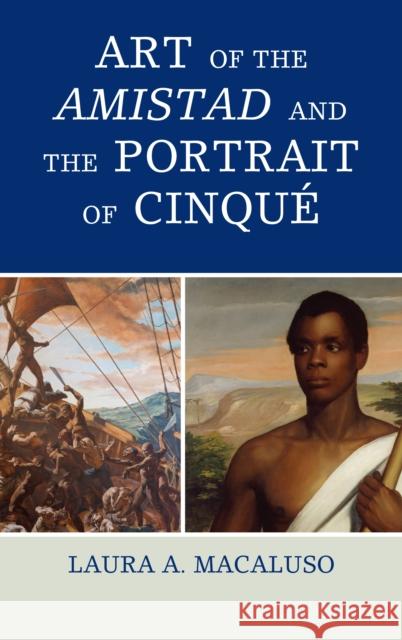Art of the Amistad and the Portrait of Cinqué » książka
Art of the Amistad and the Portrait of Cinqué
ISBN-13: 9781442253407 / Angielski / Twarda / 2016 / 194 str.
The Amistad incident, one of the few successful ship revolts in the history of enslavement, has been discussed by historians for decades, even becoming the subject of a Steven Spielberg film in 1997, which brought the story to wide audiences. But, while historians have examined the Amistad case for its role in the long history of the Atlantic, the United States and slavery, there is an oil on canvas painting of one man, Cinque, at the center of this story, an image so crucial to the continual retelling and memorialization of the Amistad story, it is difficult to think about the Amistad and not think of this image. Visual and material culture about the Amistad in the form of paintings, prints, monuments, memorials, museum exhibits, quilts and banners, began production in the late summer of 1839 and has not yet ceased. Art of the Amistad and The Portrait of Cinque is the first book to survey in total these Amistad inspired images and related objects, and to find in them shared ideals and cultural creations, but also divergent applications of the story based on intended audience and local context. Tracing the revolutionary creation of what art historian Stephen Eisenman calls "a highly individualized, noble portrait of an African man," Art of the Amistad and The Portrait of Cinque is built around visual and material culture, and thus does not use images merely as illustration, but tells its story through the wide range of images and materials presented. While the Portrait of Cinque seems to sit quietly behind Plexiglass at a local history museum, the impact of this 175-year old painting is palpable; very few portraits from the 19th century--let alone a portrait of a black man--remain a relevant part of culture as the Portrait of Cinque continues to be today. Art of the Amistad the Portrait of Cinque is about the art and artifacts that continue to inform and inspire our understanding of transatlantic history--a journey 175 years in the making.











